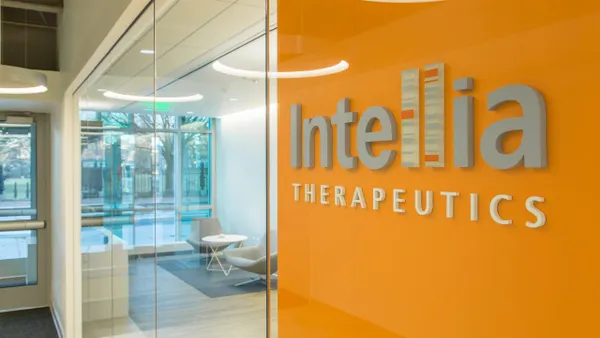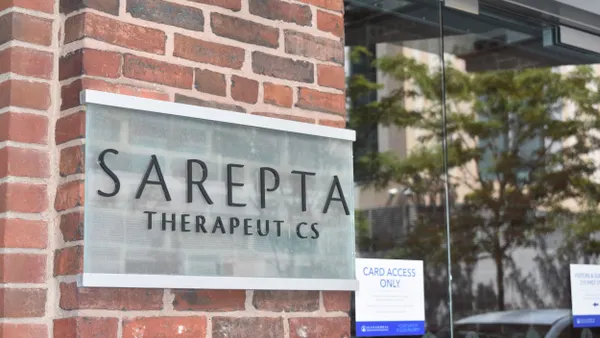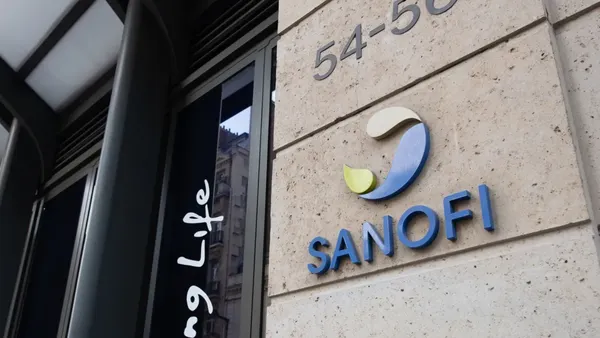Dive Brief:
- Aduro Biotech, Inc. has canceled its lead program, a first-generation, Listeria-based cancer treatment, after a string of concerns over Listeria infections and a Food and Drug Administration clinical hold.
- All ongoing studies of CRS-207, in gastric and ovarian cancer, as well as mesothelioma, will be wound down. The company's focus will shift to its STING agonist program, B-select antibodies, and neoantigen approach with pLADD, a personalized version of the live, attenuated double-deleted listeria (LADD) platform.
- Following the changes, Aduro expects its current cash balance to be sufficient to fund planned activities for the next three years through 2020.
Dive Insight:
Aduro has decided to pull the plug on its first-generation bacteria-based cancer therapy, CRS-207. The decision is based on early results from Phase 1 mesothelioma and ovarian cancer studies, and a "business and commercial assessment." The market seems to have supported the decision, with a small share price hike of 5%, though the value is still down over 27% year-to-date.
"While we are disappointed with the results for CRS-207, our clinical development program was designed to quickly generate data that could inform timely decision-making and allow us to prioritize our portfolio accordingly," said Stephen Isaacs, chair and CEO of Aduro.
Aduro's STING agonist program has ADU-S100 in Phase 1, alone and in combination with Novartis' anti-PD-1 antibody PDR001, in solid tumors and lymphomas. Other clinical trials are planned.
In October, the Food and Drug Administration put a partial hold on all trials of CRS-207 based on the company's live, attenuated double-deleted listeria (LADD) platform, with concerns over listeria infections. These have also cropped up before, with a case of listeriosis in a study of CRS-207 with GVAX Pancreas reported in 2015.
The clinical hold was lifted in November 2016, after the company modified protocols to "include extended patient surveillance, to exclude patients with certain prosthetic devices that are not easily removed, and to add guidance to administer prophylactic antibiotics following LADD-based treatment for patients who may receive immune-suppressive treatments."
An additional factor in the decision is likely to be the results for the Phase 2b ECLIPSE study. Back in May 2016, Aduro reported that CRS-207 didn't meet the primary endpoint, an improvement in overall survival for patients with pancreatic cancer who had failed at least two prior therapies in the metastatic setting.
Aduro licensed two LADD programs, ADU 214 and ADU 741, and other products, to Janssen Biotech, Inc. for development in lung and prostate cancer back in 2014. The two deals together could be worth up to $1.2 billion. The clinical hold affected the lung candidate, ADU-214, but its not clear what impact the discontinuation of the first-generation LADD agents will have on the deal with Janssen, the drug development unit of Johnson & Johnson.












